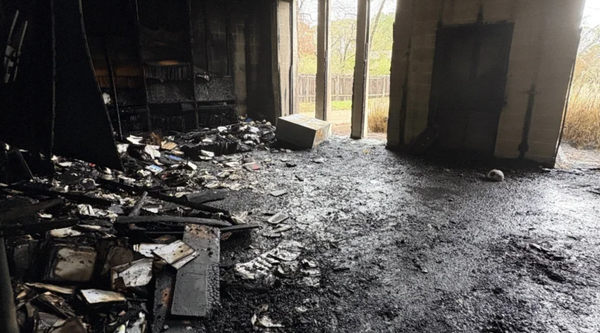
Washington (AFP) - The US Supreme Court is used to doing the grilling but it will be the high court itself in the hot seat on Tuesday as a Senate panel conducts an extraordinary examination of the ethics of the justices.
The Senate Judiciary Committee hearing comes with a record 58 percent of Americans disapproving of the job being done by the court, composed of six conservative and three liberal justices.
The Democratic-controlled Senate committee has called the hearing following recent revelations about business dealings by two conservative justices and lavish gifts received by one of them.
Chief Justice John Roberts, a moderate conservative, was invited to testify but declined, citing "separation of powers concerns and the importance of preserving judicial independence."
Instead, the five witnesses for the hearing which begins at 10:00 am (1400 GMT) will include two former US District Court judges, one of whom served as US attorney general under president George W. Bush, a law professor and the director of ethics at a campaign finance watchdog group.
Senator Dick Durbin, chair of the Senate panel, called the hearing after news outlet ProPublica reported that Justice Clarence Thomas, a staunch conservative, had accepted expensive gifts and luxury travel from a Republican political donor, billionaire real estate tycoon Harlan Crow.
Thomas, 74, the longest-serving member of the court, responded by saying it was his understanding that "personal hospitality from close personal friends, who did not have business before the court, was not reportable."
Crow has made more than $10 million in donations to Republican political groups, according to ProPublica, including half a million dollars to a conservative lobbying group founded by Thomas' wife, Ginni Thomas.
Ginni Thomas' involvement in politics has drawn its own scrutiny for her support of efforts by former Republican president Donald Trump to overturn the results of the 2020 presidential election.
Questions have also been raised about another conservative justice, Neil Gorsuch.
According to Politico, Gorsuch, just after being confirmed to the court in 2017, sold a large rural Colorado property to the head of Greenberg Traurig, a major US law firm which regularly handles cases before the high court.
Gorsuch had tried without success to sell the property for two years before joining the Supreme Court, and he did not disclose the buyer on his personal disclosure reports, according to Politico.
'Historic lows'
The revelations follow a tumultuous year during which the court handed down rulings in a number of major cases -- overturning the constitutional right to abortion, rolling back environmental protections and affirming gun rights.
The abortion case was rocked by the extraordinary leak of a draft of the eventual majority opinion.
Steven Schwinn, a University of Illinois Chicago law professor, said it is unusual for Congress to hold a hearing on Supreme Court ethics but it is rare to have controversy surrounding "so many justices and so many issues."
"This confluence is contributing to the historic lows in confidence and popularity of the court and eroding trust in it as a special institution, one that really is supposed to be independent," Schwinn told AFP.
According to a September 2022 Gallup poll, 40 percent of Americans approve of the court's performance while 58 percent disapprove.A decade earlier 49 percent approved while 40 percent disapproved.
In his letter inviting Roberts to testify, Durbin, the committee chair, said "there has been a steady stream of revelations regarding justices falling short of the ethical standards expected."
The chief justice responded with a copy of court ethics guidelines and a statement signed by all nine justices in which they "reaffirm and restate foundational ethics principles and practices."
Supreme Court justices are the only federal judges not explicitly bound by a code of conduct and Schwinn said the recent controversies illustrate the limits of their "self-policing."
"They appear utterly unconcerned with an ethical standard that is ubiquitous in other portions of the government and that is the appearance of impropriety," he said."The court seems utterly tone deaf to it."







